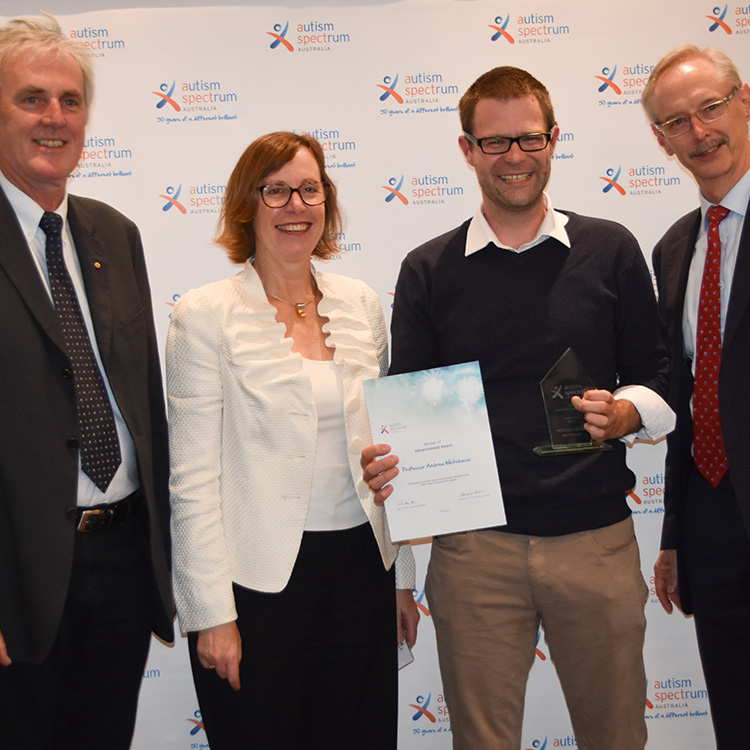Search
Research
Occurrence of psychosis and bipolar disorder in adults with autism: A systematic review and meta-analysisEvidence suggests that individuals with autism spectrum disorder have increased rates of co-occurring psychosis and/or bipolar disorder. Considering the peak age of onset for psychosis and bipolar disorder occurs in adulthood, we investigated the co-occurrence of these disorders in adults with autism.
Research
Early motor function of children with autism spectrum disorder: A systematic reviewEarly motor impairments have been reported in children with neurodevelopmental disorders (NDD), but it is not clear if early detection of motor impairments can identify children at risk for NDD or how early such impairments might be detected. Our aim was to characterize early motor function in children later diagnosed with NDD relative to typically developing children or normative data.

People
Andrew WhitehouseDeputy Director (Research); Angela Wright Bennett Professor of Autism Research at The Kids Research Institute Australia; Director, CliniKids
Research
Investigating Parental Observations of Early Autism Development in Simplex and Multiplex FamiliesPast research has highlighted the importance of early identification of developmental differences to improve targeted access to early interventions or supports. As such, it is of particular importance in the context of children at elevated likelihood of autism (such as where an older sibling has a diagnosis of autism), to better understand when and which early concerns are important as predictors of which children will benefit from pre-diagnostic supports.
Research
Empathy and Autism: Establishing the Structure and Different Manifestations of Empathy in Autistic Individuals Using the Perth Empathy ScaleThere is a common mischaracterisation that autistic individuals have reduced or absent empathy. Measurement issues may have influenced existing findings on the relationships between autism and empathy, and the structure of the empathy construct in autism remains unclear.
Research
Maternal Serum Vitamin D Levels During Pregnancy and Offspring Neurocognitive DevelopmentNew research links poor language to lack of Vitamin D in womb.

News & Events
Autism researcher wins accolade for science videosProfessor Andrew Whitehouse has been awarded an Autism Spectrum Australia Recognition Award for his work communicating scientific findings to families.
Research
Child and Family Characteristics Associated with Symptoms of Anxiety in Autistic Children: A Biobank StudyAutistic children have an increased likelihood of anxiety, but more research is needed on the characteristics that predict various types of anxiety in this population.
Research
A GWAS for grip strength in cohorts of children-Advantages of analysing young participants for this traitGrip strength is a proxy measure for muscular strength and a predictor for bone fracture risk among other diseases. Previous genome-wide association studies have been conducted in large cohorts of adults focusing on scores collected for the dominant hand, therefore increasing the likelihood of confounding effects by environmental factors.
Research
Harmonization of SDQ and ASEBA Phenotypes: Measurement Variance Across CohortsHarmonizing the scores obtained by different instruments that measure the same construct enable researchers to combine them in one analysis. An important step in harmonization is checking whether there is measurement invariance across populations.
